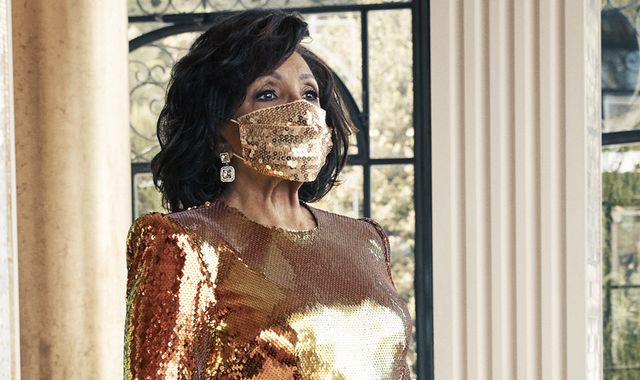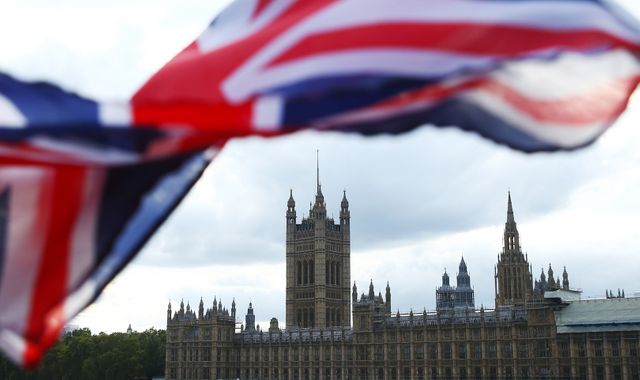Coronavirus: Mancunians remain defiant over lurking Tier 3 restrictions
Written by News on 16/10/2020
“The government is about to sign the death warrant for Manchester,” says Don.

The Mancunian in his 80s doesn’t want to give his full name. He sits in his favourite pub – the Castle Hotel in Oldham Road in Manchester.
The live music venue is near empty. Yellow and black tape warns punters not to touch the piano.
“This place would be normally heaving at this time,” continues Don. Now it’s just him in the window seat. “Yes, it’s human interaction that’s passing on this virus.
“But it’s what we are. It’s the very essence of our being. Human interaction. Can you not understand that? If you deny that, it’s totalitarian.”
This week Manchester has stood up to pressure from central government to tighten coronavirus lockdown restrictions on the city.
The population has already been living under tighter rules than most since 31 July in an attempt to stem the high number of cases in the city.
Households haven’t been allowed to mix, including inside pubs, but a move to Tier 3 would see pubs closed completely and Don, for one, has had enough.
“The media loves hysteria,” Don tells my two-metre extended microphone with disdain. “And it becomes a feedback loop with your audience.
:: Subscribe to the Daily podcast on Apple Podcasts, Google Podcasts, Spotify, Spreaker
“But hopefully one day, like all feedback loops, the amplifier will blow up, and that’s you guys.”
Many in the city think a new lockdown is an overreaction that would be a death knell for a city that is built on hospitality and culture.
The landlord at the Castle Hotel, Jonny Booth, sits in the empty backroom of his pub where time has stopped. Wall posters advertise acts from last March. The speakers and a chandelier gather cobwebs and dust.
“At some point the cure is going to cost more than the disease,” says Mr Booth.
“And I feel we’re teetering on that line at the moment. If we continue to push too much with these restrictions and lockdowns and preventing people just getting back to normal then I fear that my children’s grandchildren will still be paying the debt off.”
Liverpool may have owned 1960s music but 30 years on Manchester’s ecstasy-fuelled dance scene in clubs like the Hacienda created a new music mecca.
Locals bands the Stone Roses, New Order, The Smiths, Simply Red and Oasis ensured Manchester’s place on the global map, creating a music tradition that has endured and evolved.
Two blocks from the Castle Hotel, music journalist and singer John Robb brought me to a recently painted mural of Joy Division singer Ian Curtis, as he tried to convey what’s at stake.
“This city is where people come to record music, see music, just drown in music. It’s almost as if someone has turned the PA off and turned it to silence,” he said.
“This is the tense period now – no one knows what’s coming next the venues are all shut – you can’t put gigs on so what do you do with these spaces and these people who work in them?”
The haunted face of Ian Curtis stared at us through the rain as he eats his microphone. He sang “Love will tear us apart” – now COVID appears to be doing that to the country.
The lockdown of the spring was a national unified effort. But Manchester’s leaders are now pushing back at Westminster’s demands for local restrictions, with Mayor Andy Burnham saying the region is being set up “as a sacrificial lamb.”
Mr Robb says: “There is definitely a sense that the north is getting picked on now. Not by London – it’s the people of Westminster that’s the problem.
“Liverpool and Manchester there’s a rivalry of course, but now there is a definite feeling that we are together in this.
“Everyone’s saying ‘hang in there, we are with you. We are only one tier below you.”
He adds: “There’s a song from The Fall called The North Will Rise Again – and I keep thinking that’s such a great phrase. We will rise out of this, but we will rise united.
“I think a different version of the North will come out of this. And we keep thinking about Thatcher and the poll tax in Glasgow where they thought, ‘It’s only Scotland, it doesn’t matter.’ And now they are thinking ‘it’s only the north.'”
Along with Mancunian Brit-pop, the 1990s saw the growth of higher education and Manchester thrived to create Europe’s largest student population, a diverse gay scene emerged and a hospitality sector of Greater Manchester that employs 420,000 people.
From an underground music scene, the city sprouted upwards, with high-rise hotels and panoramic bars like 20 Stories, which opened two years ago, exceeding all financial expectations. But now they are shedding staff.
Each restriction cuts a chunk out of the industry and the vibrant culture begins to lose its lustre.
Sales manager for 20 Stories Bar, Becky Wilkes, says: “Hospitality is being punished for something that is not hospitality’s fault.
“In Manchester alone we are in the danger zone with rates at the moment. However, there is no scientific evidence that it is because of hospitality.
“Versus universities, versus education, versus the workplaces, hospitality is a very small proportion of that overall figure – yet we are being punished for it.”
Public Health England figures suggest the spread of the virus is linked to food outlets in around 3% of cases, but other data suggests it is higher and tighter restrictions on residents in Oldham appeared to have an impact on the infection rate.
Sasha Lord, the mayor’s night economy adviser, is preparing a legal challenge if the government tries to impose Tier 3 restrictions in Manchester.
He told me: “The legal challenge is still there. If they want to close our pubs and our bars down, without any scientific evidence, then we’ve got Queen’s counsel ready. We’re in the sidelines.”
However, the mayor’s former communications officer, Sally Wheatman, has a different view. She is now isolating at home having been diagnosed with cancer and believes the city should help protect the vulnerable.
She told me: “I was at Christie (NHS Foundation Trust) yesterday, I was surrounded by hundreds of people like me who are literally fighting for our lives and we’re in a position where our immune system is going to be seriously compromised, and it’s difficult to get your head around people fighting over whether the pubs should stay open or not.
“We’re in a very vulnerable position, people like me and thousands of others who have been diagnosed with cancer during the pandemic are in a very, very vulnerable position and obviously we want to be as safe as we can possibly be, and if that means closing down pubs, bars and clubs then that is absolutely what should happen.
“I think it should have happened in September.
“I have absolute sympathy for people who are losing their livelihoods. Believe me, I don’t want to see anybody in that situation because of this pandemic, but I do think that we do have to think very seriously about where the virus is being spread.
“And to be told that it’s not being spread in bars and clubs is an absolute nonsense.
“I understand that we’re social animals and it’s difficult. Believe me, I’ve been holed up since March and I totally understand how difficult it is.
“I have a son with a learning disability who found it almost impossible to deal with. But, unless we deal with is decisively, and quickly and effectively, it’s just going to linger on and on, and nobody’s going to feel safe.
“I don’t want this row to become a row between the north-south divide. I don’t want it to be a row.
“I want to see the greatest minds locally and nationally working together to come up with some solutions, and how best to tackle this virus.”
The argument over what is best to do will rage on. It is one of life and death; of livelihood and ruin.
This city, heart of the northern powerhouse, fears that heart will stop beating, without the laughter, the drinking and the music.
(c) Sky News 2020: Coronavirus: Mancunians remain defiant over lurking Tier 3 restrictions







